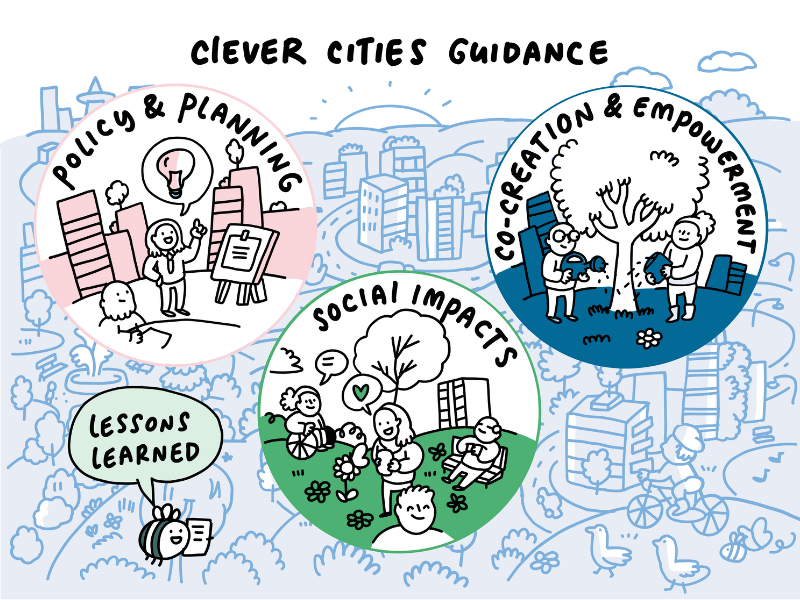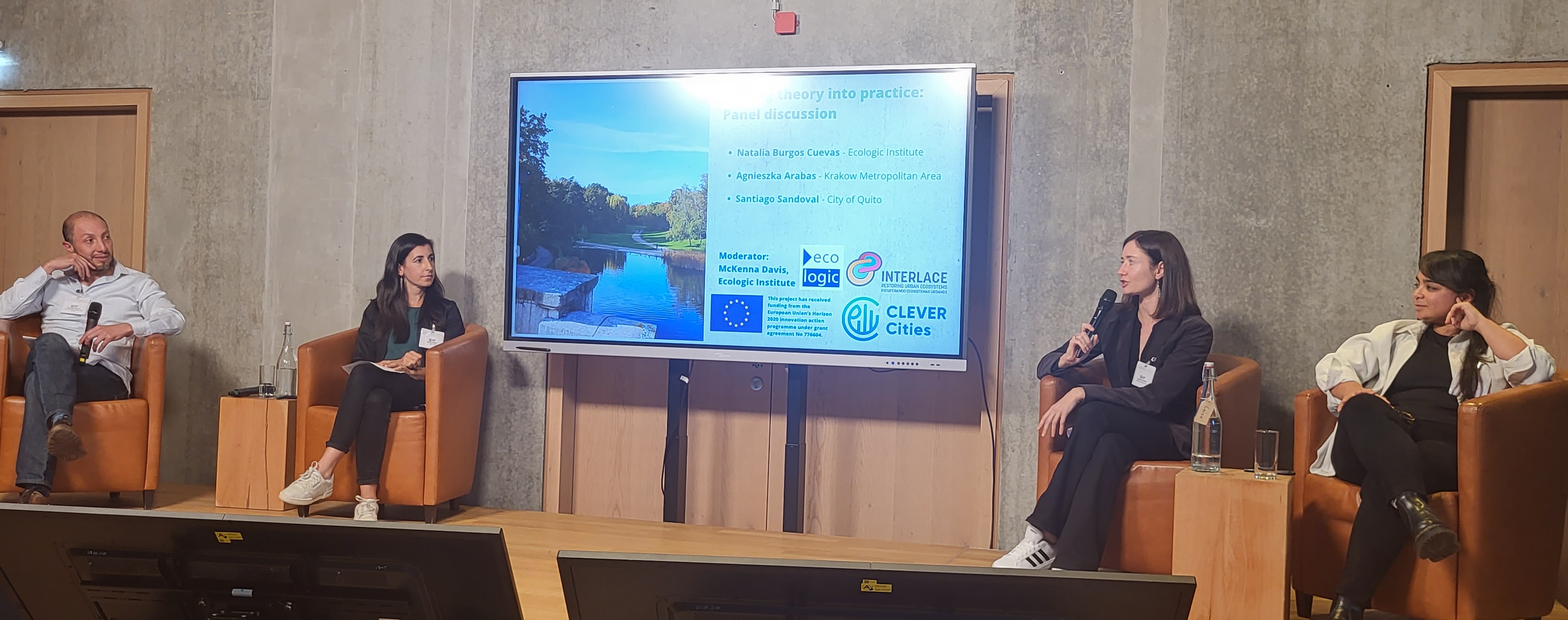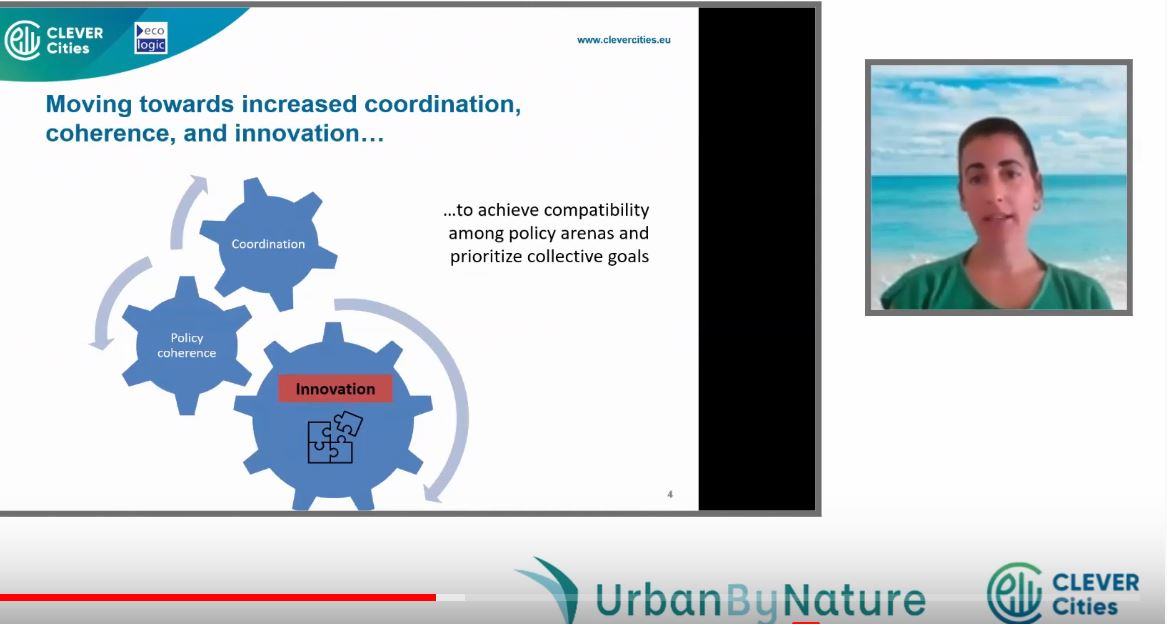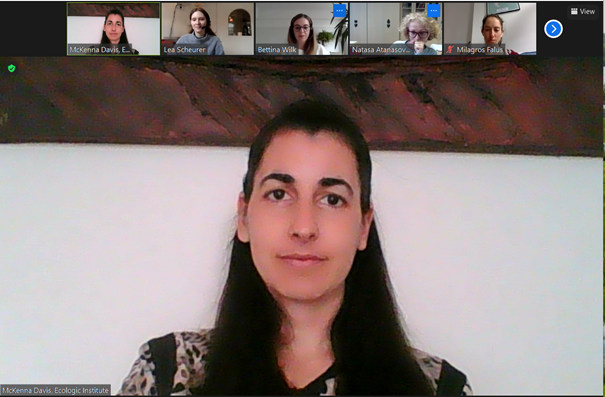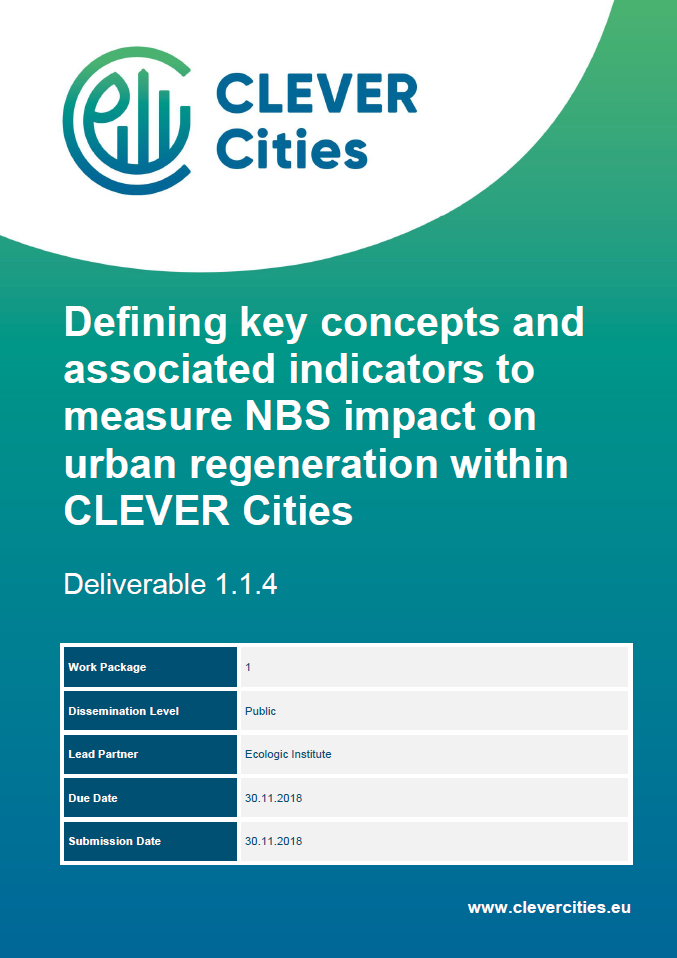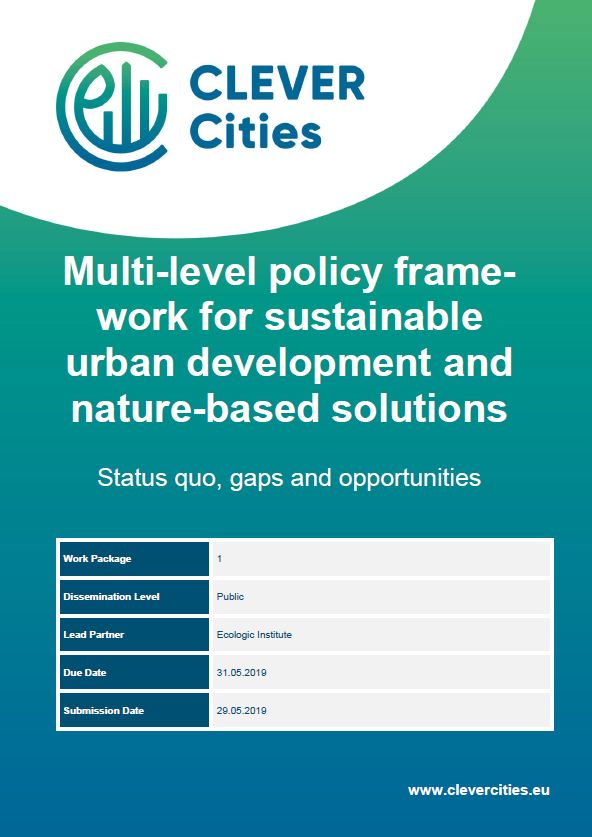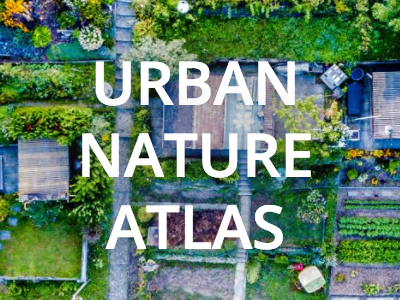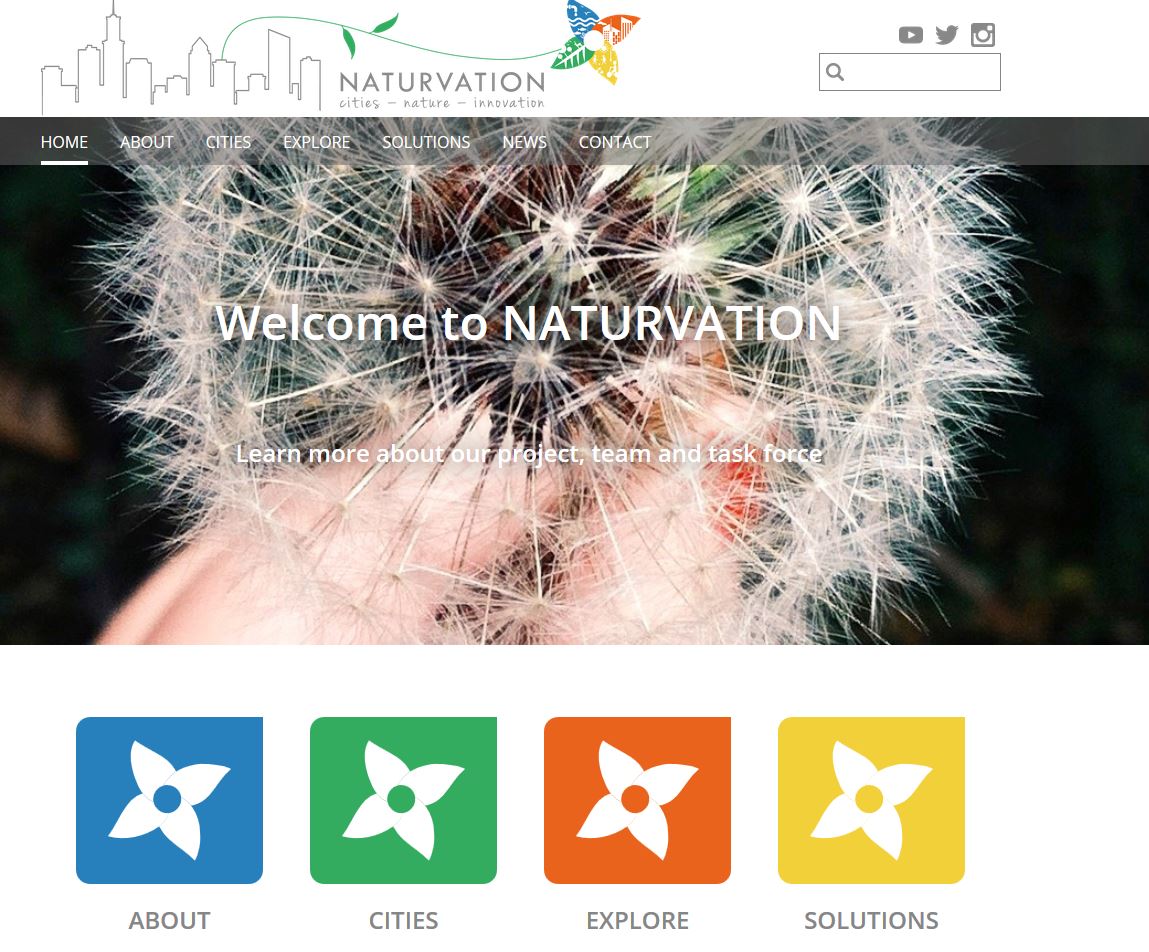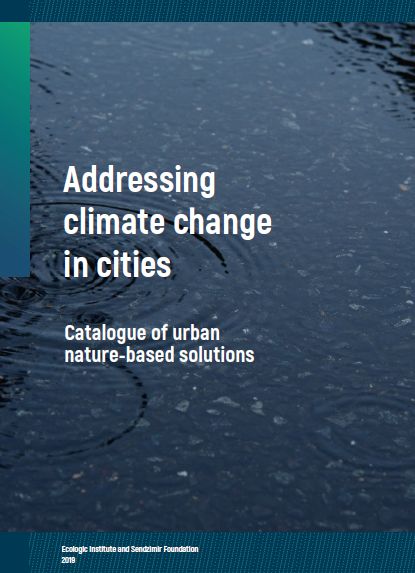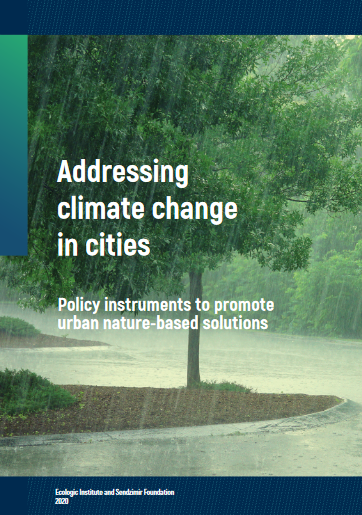Taking Nature-based Solutions to the Next Level
- Presentation
- Date
-
- Location
- online | Dordrecht, Netherlands
- Speech
The climate crisis is impacting cities and communities across the globe. As extreme weather events become increasingly frequent, cities must work together to find effective nature-based solutions (NBS) to adapt to their changing climates. As lead partner in the BEGIN project, the Dutch city of Dodrecht welcomed cities, practitioners, researchers and citizens to join the conversation on the future of livable cities. To this end, the NEXT LEVEL 2021 conference was held as a hybrid event on the 20th of October 2021. Ecologic Institute's McKenna Davis was invited as an expert to present on NBS governance and policy.
After a warm welcome from the city of Dordrecht, a panel session was convened with a variety of experts from research and practice. The discussion was structured in an interactive talk show format and focused around creating livable cities – highlighting the state of the art and current practices as well as future opportunities. These themes were explored through presentations by McKenna Davis (remote participation), as well as Ellen Kelder (City of Dordrecht), Magnar Sekse (City of Bergen), and Lien Engels (City of Antwerp), Eva Naessens (City of Ghent), Paul Sayers (Sayers and Partners), and Jens Thoms Ivarsson (Rain Gothenburg), followed by a lively discussion with the audience. The panel was followed by four parallel sessions to dive deeper into the topics of: Climate Change Adaptation & NBS; People, Society and NBS; Health, Wellbeing & NBS; and ‘Re-greening cities for multiple benefits'.
In her presentation, McKenna Davis first introduced the current state of the art regarding urban NBS governance and highlighted the associated complexities, trade-offs, and need for cross-sectoral collaboration and policy mixes. While there is no one-sized-fits-all approach to governance, she stressed the importance of involving a diversity of stakeholders at various stages of NBS – from conception through implementation and maintenance. After outlining key gaps and remaining challenges, McKenna Davis concluded with potential pathways for accelerating action through governance innovation, such as by creating more inclusive, reflexive and/or policycentric NBS governance.
The full agenda of the event and McKenna Davis's presentation are available for download.




